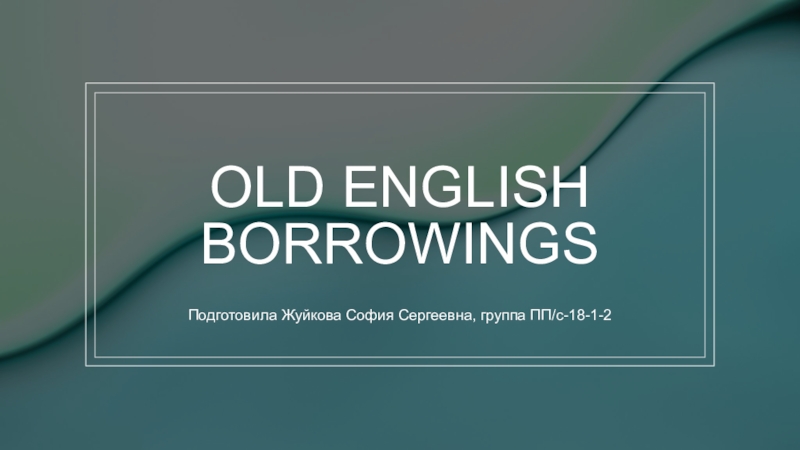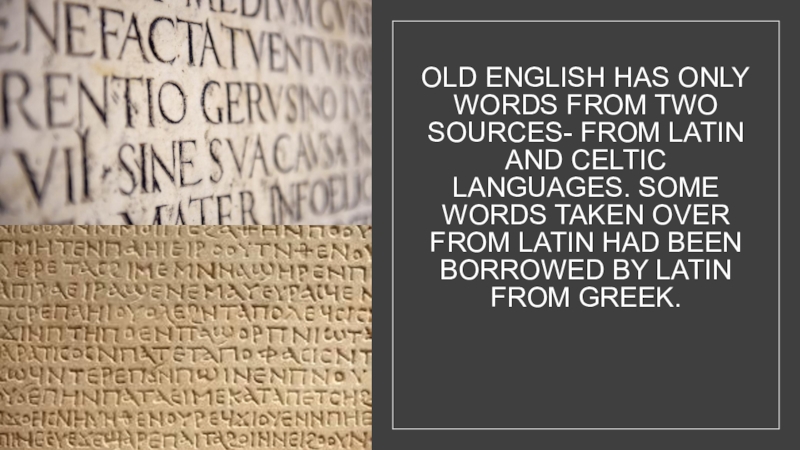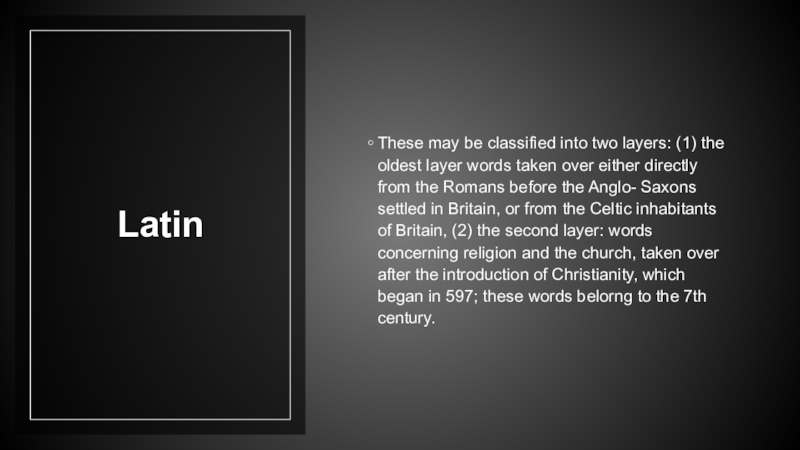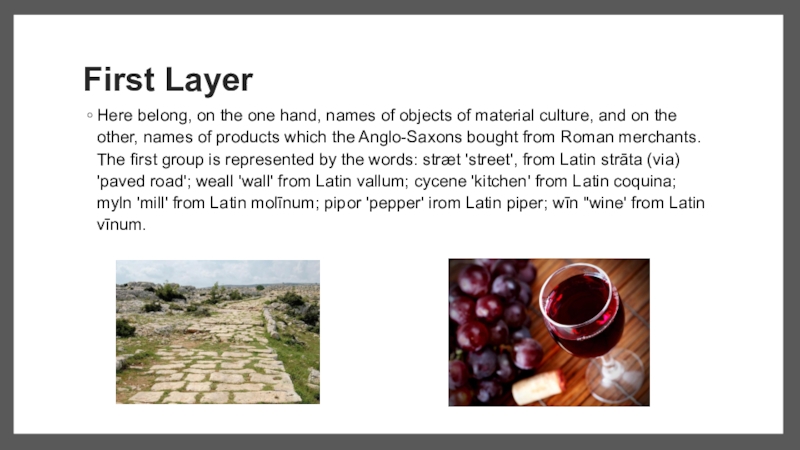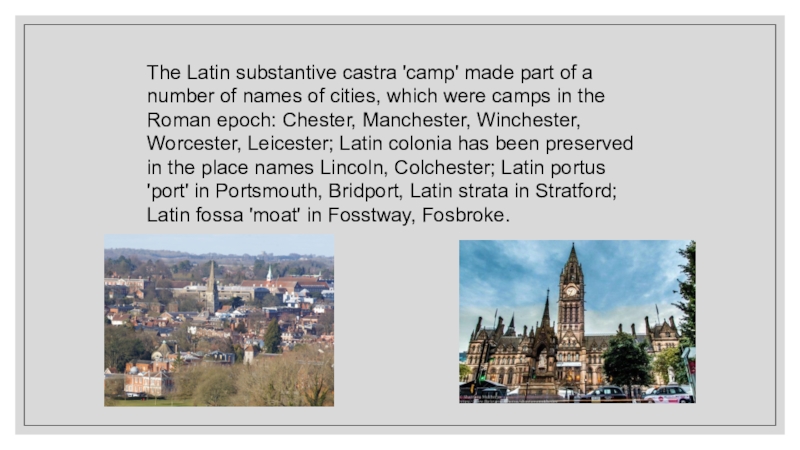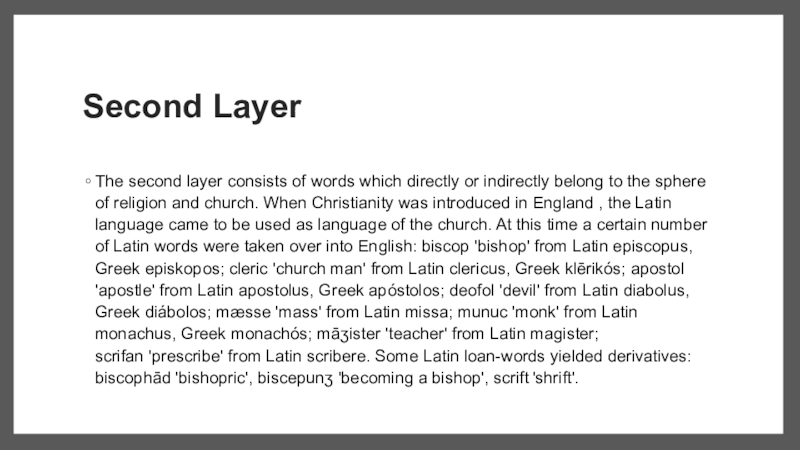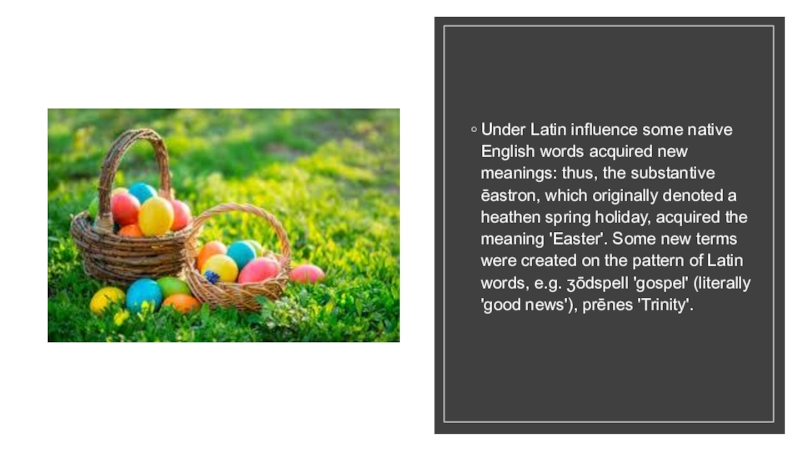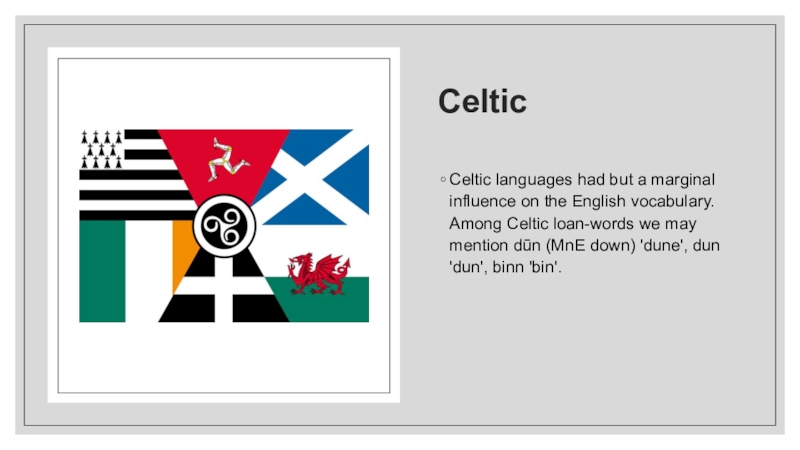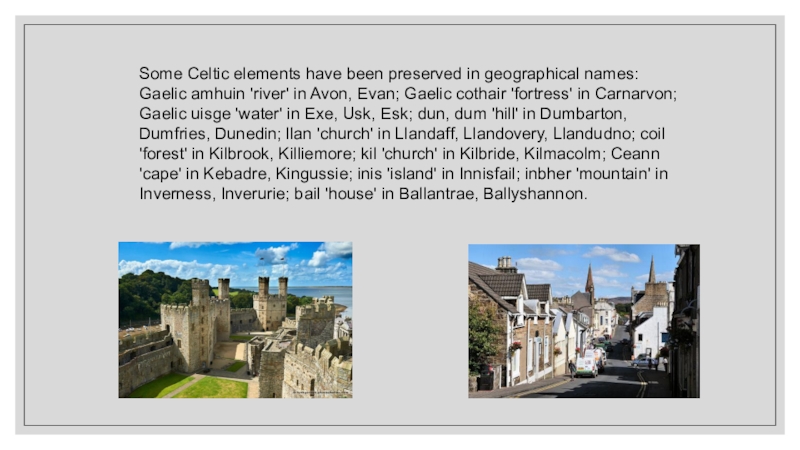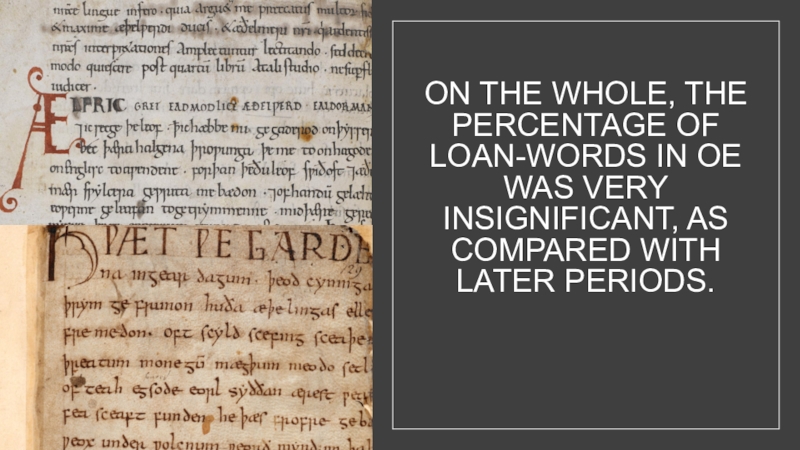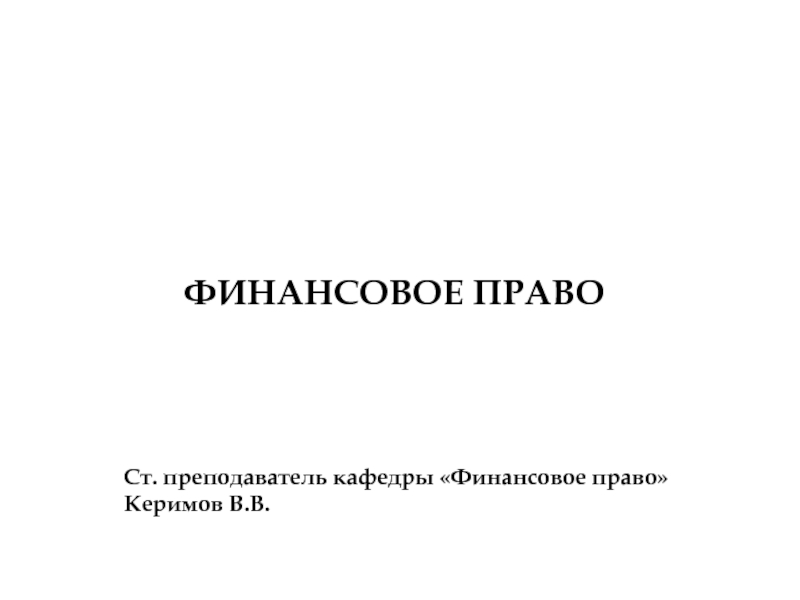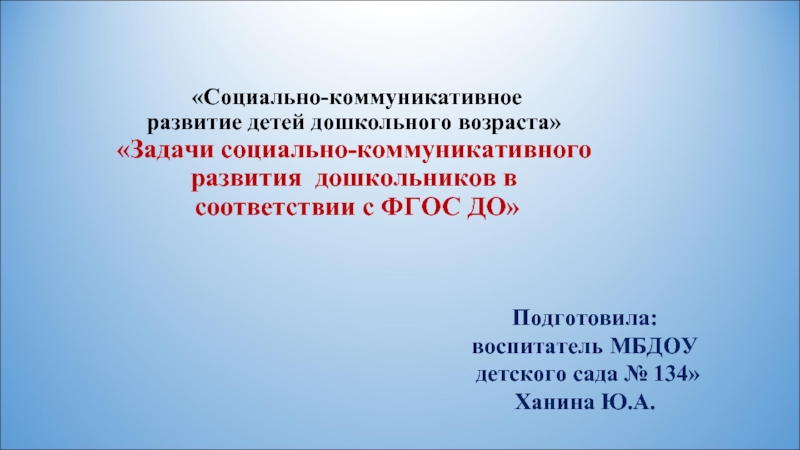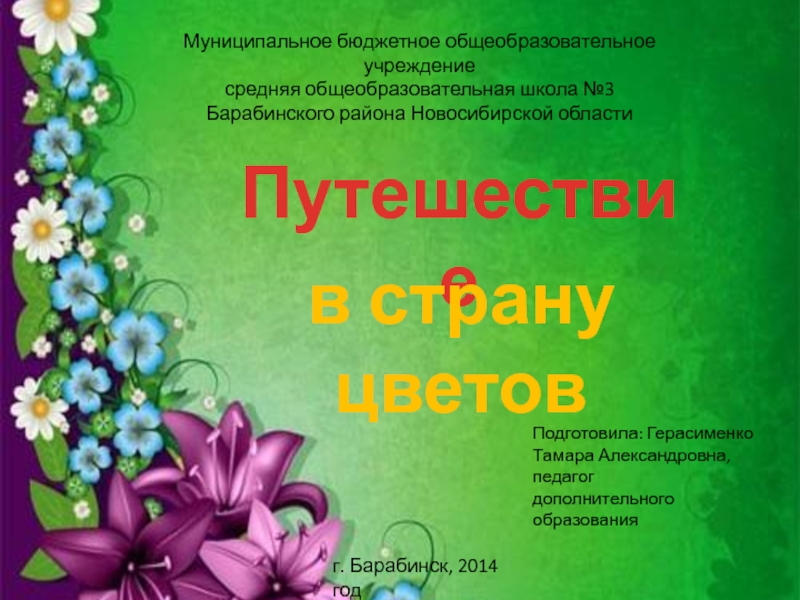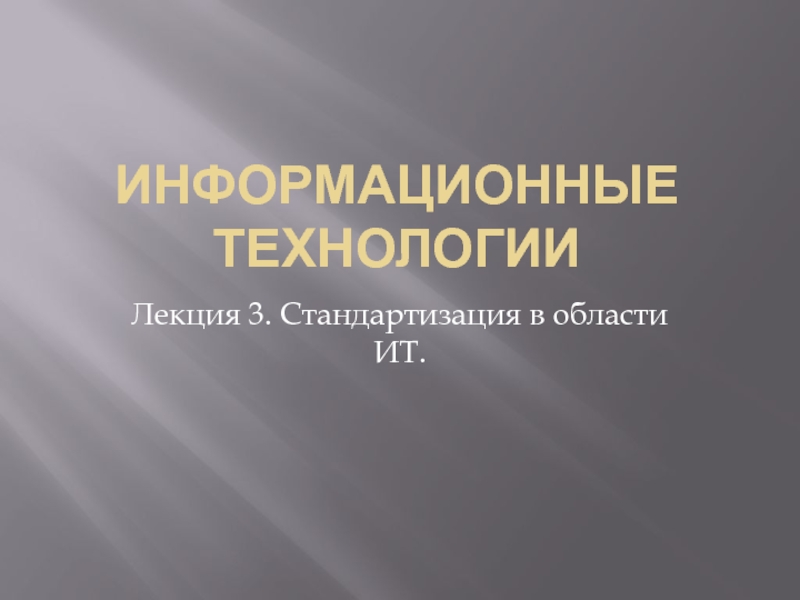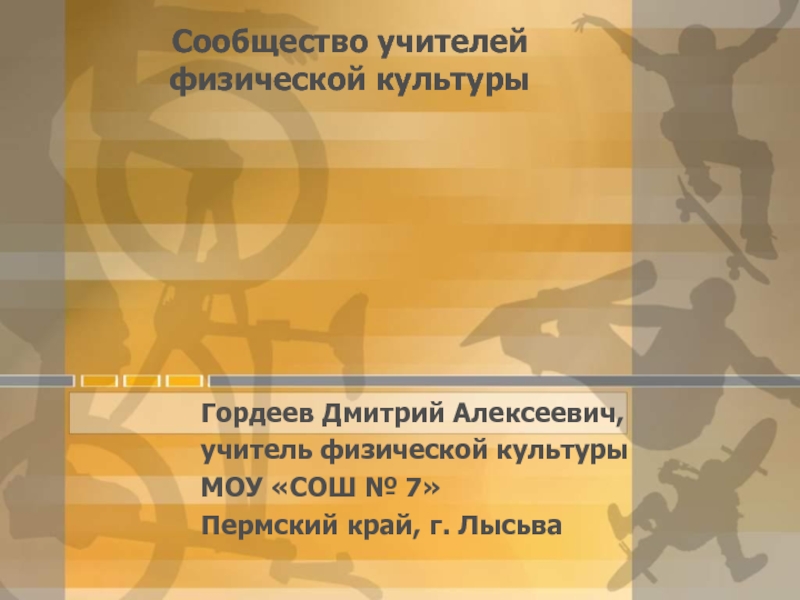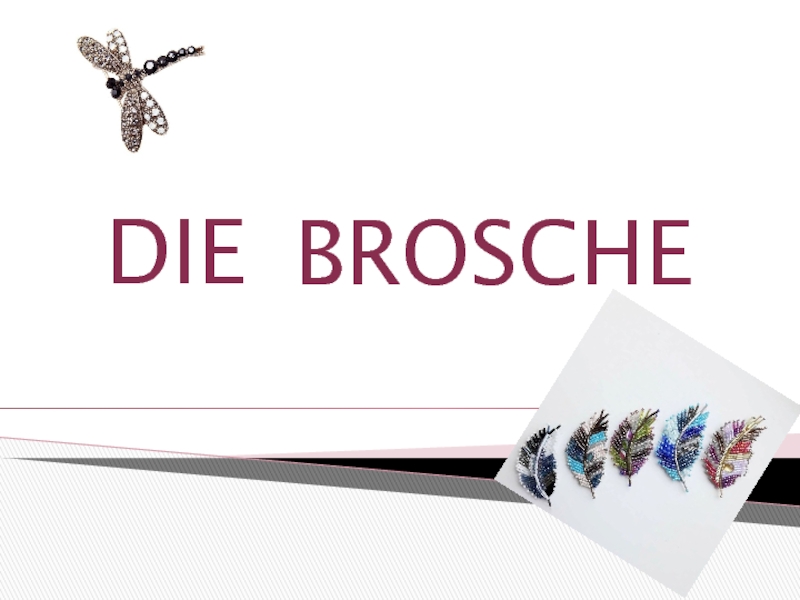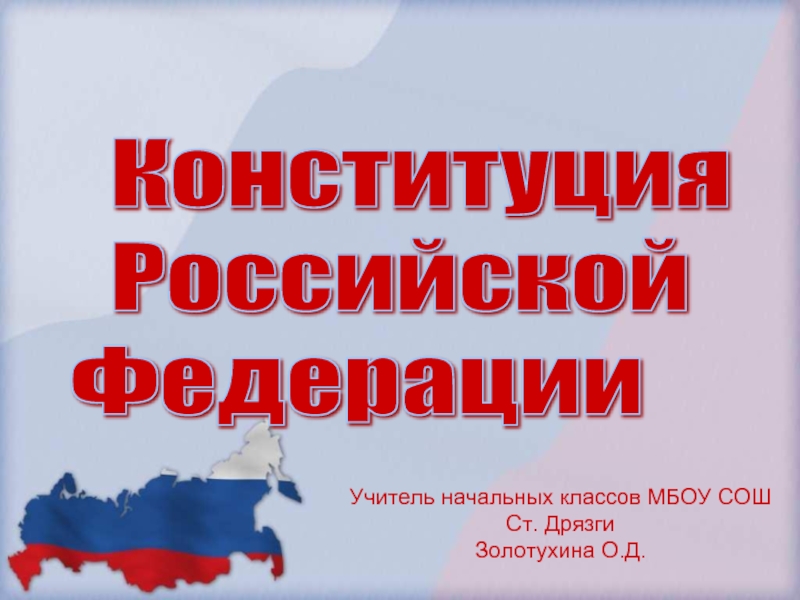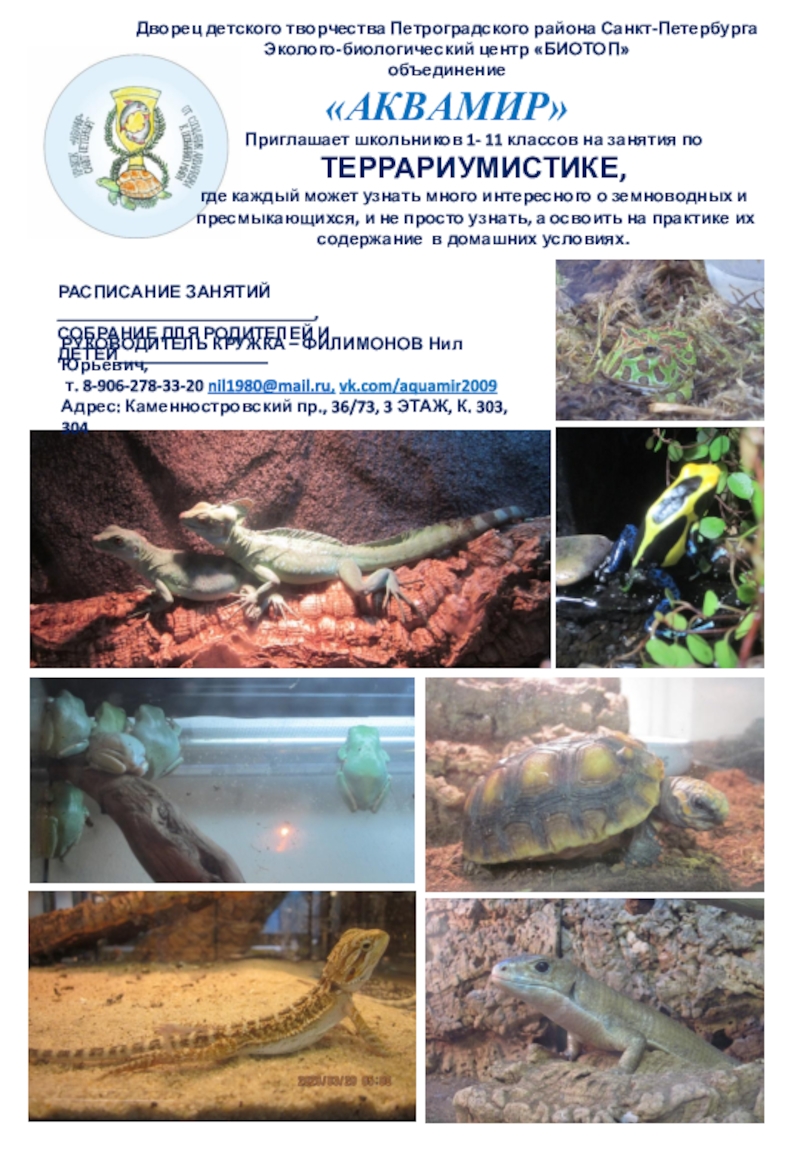Слайд 1Old English borrowings
Подготовила Жуйкова София Сергеевна, группа ПП/с-18-1-2
Слайд 2Old English has only words from two sources- from Latin
and Celtic languages. Some words taken over from Latin had
been borrowed by Latin from Greek.
Слайд 3Latin
These may be classified into two layers: (1) the oldest
layer words taken over either directly from the Romans before
the Anglo- Saxons settled in Britain, or from the Celtic inhabitants of Britain, (2) the second layer: words concerning religion and the church, taken over after the introduction of Christianity, which began in 597; these words belorng to the 7th century.
Слайд 4First Layer
Here belong, on the one hand, names of objects
of material culture, and on the other, names of products
which the Anglo-Saxons bought from Roman merchants. The first group is represented by the words: stræt 'street', from Latin strāta (via) 'paved road'; weall 'wall' from Latin vallum; cycene 'kitchen' from Latin coquina; myln 'mill' from Latin molīnum; pipor 'pepper' irom Latin piper; wīn "wine' from Latin vīnum.
Слайд 5The Latin substantive castra 'camp' made part of a number
of names of cities, which were camps in the Roman
epoch: Chester, Manchester, Winchester, Worcester, Leicester; Latin colonia has been preserved in the place names Lincoln, Colchester; Latin portus 'port' in Portsmouth, Bridport, Latin strata in Stratford; Latin fossa 'moat' in Fosstway, Fosbroke.
Слайд 6Second Layer
The second layer consists of words which directly or
indirectly belong to the sphere of religion and church. When
Christianity was introduced in England , the Latin language came to be used as language of the church. At this time a certain number of Latin words were taken over into English: biscop 'bishop' from Latin episcopus, Greek episkopos; cleric 'church man' from Latin clericus, Greek klērikós; apostol 'apostle' from Latin apostolus, Greek apóstolos; deofol 'devil' from Latin diabolus, Greek diábolos; mæsse 'mass' from Latin missa; munuc 'monk' from Latin monachus, Greek monachós; māʒister 'teacher' from Latin magister; scrifan 'prescribe' from Latin scribere. Some Latin loan-words yielded derivatives: biscophād 'bishopric', biscepunʒ 'becoming a bishop', scrift 'shrift'.
Слайд 7Under Latin influence some native English words acquired new meanings:
thus, the substantive ēastron, which originally denoted a heathen spring
holiday, acquired the meaning 'Easter'. Some new terms were created on the pattern of Latin words, e.g. ʒōdspell 'gospel' (literally 'good news'), prēnes 'Trinity'.
Слайд 8Celtic
Celtic languages had but a marginal influence on the English
vocabulary. Among Celtic loan-words we may mention dūn (MnE down)
'dune', dun 'dun', binn 'bin'.
Слайд 9Some Celtic elements have been preserved in geographical names: Gaelic
amhuin 'river' in Avon, Evan; Gaelic cothair 'fortress' in Carnarvon;
Gaelic uisge 'water' in Exe, Usk, Esk; dun, dum 'hill' in Dumbarton, Dumfries, Dunedin; llan 'church' in Llandaff, Llandovery, Llandudno; coil 'forest' in Kilbrook, Killiemore; kil 'church' in Kilbride, Kilmacolm; Ceann 'cape' in Kebadre, Kingussie; inis 'island' in Innisfail; inbher 'mountain' in Inverness, Inverurie; bail 'house' in Ballantrae, Ballyshannon.
Слайд 10On the whole, the percentage of loan-words in OE was
very insignificant, as compared with later periods.
Слайд 11Thank you very much for your attention!
